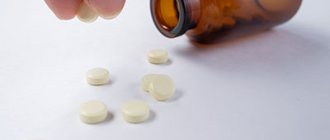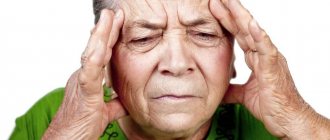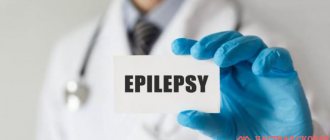When a person is in an unstable mental state, he often has a feeling of anxiety or panic, doctors prescribe him special medications. Tranquilizers and sleeping pills, when used uncontrolled, cause severe addiction. Coping with drug addiction on your own is quite difficult. In such situations, the assistance of qualified doctors is usually required.
- Read in the article:
- Drug addiction
- What is drug addiction?
- Mental dependence on drugs
- Causes of pill addiction
- Stages of drug addiction
- Consequences of drug addiction
- Types of drug addiction
- Dependence on psychotropic drugs
- Painkiller addiction
- Tranquilizer addiction
- Sleeping pill addiction
- Antidepressant addiction
- Prevention of drug addiction
- The danger of drug addiction
- Drug withdrawal
- Drug overdose
- Treatment methods for drug addiction
- Psychotherapy for drug addiction
- Getting rid of drug addiction on your own
- Treatment of drug addiction in the clinic
Treatment prices:
| Sign up for a free and anonymous consultation with a narcologist | 0 ₽ |
| Initial consultation with a narcologist | for free |
| Consultation with a psychologist in person or Skype | 3 000 ₽ |
| Psychiatrist consultation | 5 000 ₽ |
| Psychodiagnostics / pathological diagnostics | 7 500 ₽ |
| Narcopsychotherapy | 50 000 ₽ |
| Consultation with a psychologist and selection of a treatment and rehabilitation program for an addict | for free |
| Intervention session | 12 000 ₽ |
| Social rehabilitation of alcohol addicts | for free |
| Outpatient rehabilitation in Moscow | 33 000 ₽ |
| Standard rehabilitation program | 40 000 ₽ |
| Intensive rehabilitation program | 80 000 ₽ |
| Premium rehabilitation program | 120 000 ₽ |
| Medical and social rehabilitation (21 days) | 150 000 ₽ |
| Rehabilitation Spain, Bulgaria | 200 000 ₽ |
| VIP rehabilitation program | 350 000 ₽ |
| Online addiction rehabilitation course | 28 000 ₽ |
| Rehabilitation of age-related alcohol addicts | 50 000 ₽ |
| Rehabilitation of drug addicts | 60 000 ₽ |
| Adolescent social-psychological-pedagogical rehabilitation | 70 000 ₽ |
| Psychotherapy | 5 000 ₽ |
| Family psychotherapy | 6 000 ₽ |
| Support groups for loved ones of addicts | for free |
| Webinars for relatives of addicts | for free |
| School for codependents | 3 000 ₽ |
| Transfer support | negotiable |
| Motivation for treatment | 6 000 ₽ |
| Escort to the clinic | 6 000 ₽ |
| Testing (urine/blood/hair) | specify |
Expand
Still have questions? Call us!
8
Free consultation and appointment
Cost of services
| Name of service | Price |
| Consultation with a specialist by phone | for free |
| Consultation with a narcologist-psychiatrist in the clinic | for free |
| Development of an individual treatment plan | 1500 rub. |
| Intervention | from 3000 rub. |
| Transfer to the center | from 3000 rub. |
| Hospital | from 6000 rub. per day |
| Coding | from 3000 rub. |
| Rehabilitation | from 1666 rub. per day |
| Drug testing (DTA) | 2800 rub. |
| Working with codependents | first visit is free |
Drug addiction
Drug addiction develops with prolonged use of certain drugs. The emergence of a constant need to calm down with the help of medications develops gradually. Being in a state of depression, a difficult life situation, or anxiety, many people see a solution to the problem only through the use of sedatives.
What is drug addiction?
When using psychotropic drugs, there is a strong effect on the central nervous system. The person experiences a state of euphoria and lightness. Hallucinations often occur and lethargy is present. With prolonged use of medications, withdrawal syndrome appears, accompanied by negative symptoms: aggression, irritability, anxiety and increased sweating. It is these unpleasant symptoms that force a person to take drugs again.
Mental dependence on drugs
Drug addiction leads to the rapid development of psychological attachment. A person's thoughts are always focused on whether he has pills. If the drug is missing, panic sets in. The addict believes that his normal state depends only on taking medications, and thanks to them his health is stable. Removing mental dependence is one of the main tasks in the treatment of drug addiction.
Causes of pill addiction
There are two main types of drug addiction.
- The first occurs when a person takes pills that are prescribed for certain diseases to relieve the symptoms but not the cause. Such medications are often prescribed for severe headaches, insomnia, and nervous disorders. For this, antidepressants, tranquilizers, painkillers or antipsychotics are used. Dependence forms if treatment of the underlying disease is not completed.
- The second type of addiction is more complex. An addiction is formed when the drug is included in metabolic processes, and if it is rejected, serious disruptions in the functioning of internal organs occur.
Stages of drug addiction
There are no absolutely safe medicines. Each type of drug should be used as prescribed by a doctor in the correct dosage. If a person begins to increase the dose to improve his mental state, addiction forms. The body quickly adapts to large amounts of medication and can no longer function normally without doping. At the initial stage it is much easier to get rid of addiction. At a severe stage of development, longer time and complex treatment are required.
Addictive pills
All medicines are aimed at the benefit of humanity and are intended to treat the sick. However, if overused, some of them can provoke symptoms of addiction (dependence):
- antidepressants and antipsychotics;
- tranquilizers (sedatives);
- analgesic and anesthetic drugs;
- substances containing codeine;
- stimulants of mental activity (activating or inhibiting it).
Pharmacological dependence is provoked by drugs to reduce appetite or with a laxative base, the habit of which is quite difficult to get rid of (especially for people suffering from excess weight).
The effect of drugs for insomnia and depression occurs at the physical and psychological level - the patient thinks that without them recovery and improvement of the condition is impossible. Therefore, the need to use such drugs moves to the physiological level.
Free consultation with a psychologist with 10 years of experience
Start solving the problem right now!
8
anonymous and 24/7 hotline
Treatment calculator
Field score:
Total score:
Patient age
Length of use
What he uses Has he previously undergone treatment Consent to treatment Concomitant diseases Employment
Waiting for values to be entered
Consequences of drug addiction
Exceeding the dose of the drug for a long period leads to serious consequences. Independent refusal provokes the appearance of signs of withdrawal syndrome, characteristic of alcoholics and drug addicts, with all the ensuing consequences. The functioning of the heart and digestion is disrupted, severe headaches appear, and depression develops. Just like drug addicts, there is a high risk of overdose, which can be fatal.
Types of drug addiction
Drug abuse leads to two types of addiction:
- Psychological
. Develops immediately after discontinuation of the drug. In the absence of the drug, a person becomes anxious and irritable. An irresistible desire to take the medicine appears, turning into an obsession. - Physical
. It is manifested by the occurrence of withdrawal syndrome after refusal to take the drug. A person experiences muscle pain, cramps, chills, and malfunctions in the internal systems of the body.
Any negative manifestations of addiction require professional help from doctors. You need to put on an IV to relieve withdrawal symptoms and cleanse your body of toxins.
Dependence on psychotropic drugs
Seduxin, nozepam, ephedrine, alprazolam and other psychotropic drugs are prescribed for neuroses and depressive states. Side effects with prolonged and uncontrolled use have too negative an impact on the psyche. With withdrawal and a lack of psychotropics in the body, a person begins to feel unwell. To get rid of addiction, replacement therapy is required, which is carried out in a clinic by qualified doctors.
Painkiller addiction
Typically, painkillers are used for headaches. Instead of looking for the cause of the pain, people begin to extinguish the symptoms by falling under the influence of the drug. Frequent use of analgesics and painkillers can be highly addictive, which is difficult to overcome on your own.
Tranquilizer addiction
Tranquilizers have different effects on the body. Dependence develops gradually and is expressed in aggravated withdrawal symptoms and frequent bouts of intoxication. The degree of severity depends on the type of drug, the dose used and the period of administration. Commonly used drugs include Relanium, phenazepam, lorazepam, diazepam, sibazon, medazepam.
Sleeping pill addiction
Many people suffer from insomnia for various reasons. Sedative medications help normalize sleep if the dosage is followed. Therefore, it is not recommended to use sleeping pills on your own. Barbiturates and other sleeping pills lead to severe drug addiction.
Antidepressant addiction
The danger of addiction to antidepressants is that all the signs and consequences of addiction are similar to drug addiction. A person lives only thanks to pills, and if he refuses, he feels helpless and irritable.
Still have questions? Call us!
8
Free consultation and appointment
Dependency syndrome: the essence of the concept
For the patient, this condition can result in disastrous consequences. He first partially and then completely loses the ability to control himself and his actions, his emotional background and the criticality of his thinking. In ICD-10, addiction syndrome is defined as a complex of behavioral, physiological and cognitive phenomena in which the use of narcotic and other types of psychoactive substances occupies a central place in a person’s value system.
Relatives, friends, work colleagues, interests and activities that were previously important to the patient fade into the background. After some time, they almost completely disappear from his life. The main characteristic of the syndrome is a strong, sometimes irresistible desire to consume alcohol, drugs and other substances that alter consciousness.
Doctors focus on the fact that people with addiction syndrome, even after a long period of abstinence, return to using psychoactive drugs, and their symptoms become more pronounced. People who do not have this diagnosis can take these substances without such a pronounced clinical picture, provided that the use is episodic and there is no overwhelming desire to achieve euphoria with the help of drugs or alcohol.
The danger of drug addiction
Dependence on tranquilizers or antidepressants leads to dire consequences if not treated in a timely manner. A person under the influence of chemicals loses his mind and develops serious pathologies. Drug addiction leads not only to personality disintegration, but also to frequent withdrawal symptoms and overdoses. Both conditions often result in premature death.
Drug withdrawal
After stopping the medication, a person experiences withdrawal symptoms. Symptoms depend on the type of drug. The main signs of withdrawal syndrome are expressed in psychological disorientation, a feeling of fear and complete helplessness arises. Addicted people in a state of withdrawal experience fear, panic, and severe headaches.
Drug overdose
In case of a drug overdose, a person experiences the following symptoms:
- Restlessness or lethargy;
- Copious secretion of saliva;
- Pupil dilation;
- Tremor of the limbs;
- Reduced blood pressure;
- Breathing disorders;
- Hallucinations appear.
Severe overdose often leads to coma.
Mental craving as an element of the syndrome
A person’s thoughts are constantly concentrated on the desired object or type of activity. The anticipation of owning it lifts the mood, and if this is not available, the patient feels dissatisfaction with himself and the world around him, and depression. The treatment process for this disease in most cases ends successfully, and the person returns to normal life. If relapses occur, their cause is precisely the mental craving for psychoactive substances, alcohol or other activities that cause short-term euphoria.
The style of behavior changes radically, very often the dependence syndrome is accompanied by objective manifestations. A person consciously or unconsciously tries to escape reality, to resolve conflicts in the only available way. This behavior falls into the category of destructive; strong emotions bring pleasure only to the addict, but not to those around him. It destroys all social ties and leads to problems in the family and at work.
Treatment methods for drug addiction
Treatment of drug addiction includes complex measures. A difficult task is solved using several techniques; it requires a highly qualified doctor and a complete diagnosis of the body’s condition. Complete recovery from addiction is possible with an individual approach to each patient. Complex therapy and subsequent rehabilitation will help you get rid of severe addiction forever.
Psychotherapy for drug addiction
Getting rid of physical addiction to medications is half the success. It is important to carry out psychological work aimed at stopping taking medications. Only qualified psychologists and psychotherapists will be able to free the addict’s thoughts from unnecessary information. Drug treatment clinics provide personal and group motivational sessions. People learn to live without medications, cope with stress and problems without using psychotropic substances and sedatives.
Getting rid of drug addiction on your own
Getting rid of drug addiction on your own is almost impossible. With prolonged use of drugs, a person experiences irreparable changes in the psyche and develops concomitant chronic diseases. It is quite difficult to independently refuse a drug that stabilizes your mental state.
How to treat addiction?
It should be understood that uncontrolled and long-term use of drugs can lead to severe and irreversible disorders of the body, so the main thing is to recognize the presence of addiction in time in order to avoid worsening the problem. With timely diagnosis, treatment proceeds quickly and without complications. Treatment should only be carried out by a qualified specialist. The doctor determines the substance that caused the addiction, as well as the type and stage of the addiction itself. Treatment has an integrated approach, consisting of several stages:
- a set of diagnostic examinations;
- replacing the drug with an analogue with a similar effect;
- gradual reduction in dosage;
- in the presence of depressive symptoms, psychotherapy is carried out.
If you suspect drug addiction, you should not self-medicate. This can only make the situation worse. To prevent addiction, you should take any medications strictly under the supervision of a doctor, carefully read the instructions and not self-medicate.
Be healthy!










